Poland
Work Visas in Poland: A Comprehensive Guide
Poland’s robust economy, strategic location at the heart of Europe, and membership in the European Union make it an increasingly popular destination for skilled professionals worldwide. Whether you’re in IT, manufacturing, healthcare, or seasonal agriculture, understanding Poland’s work permit and visa system is essential before accepting an offer. This guide covers the main Polish work permit categories, eligibility criteria, application procedures, required documentation, timelines and fees, status extensions, restoration rules, pathways to long‑term residency, and practical tips to ensure a smooth transition.
Types of Polish Work Permits
Work Permit Type A
Scope: The most common category, permitting non‑EU nationals to work for a single employer at a fixed address in Poland.
Use Case: Full‑time employment under an employment contract, civil law contract (umowa zlecenie or umowa o dzieło), internship, or apprenticeship.
Validity: Up to 3 years (renewable).
Work Permit Type B, C, D, and E
• Type B: Members of management boards of Polish companies.
• Type C: Supervisory board members.
• Type D: Short‑term performances (artists, performers).
• Type E: Multiple employments (several employers), each declared in a single permit.
Validity and conditions vary by category but generally mirror Type A’s duration.
Seasonal Work Permit
Scope: Permits employment in agriculture, horticulture, or tourism for up to 9 months in a 12‑month period.
Use Case: Harvest seasons, hospitality peaks, and other cyclical needs.
Validity: Maximum 9 months; cannot exceed 3 months in any rolling 6‑month span without renewal.
EU Blue Card
Scope: Highly skilled non‑EU nationals with tertiary education or 5+ years of professional experience.
Use Case: High‑skill roles listed on Poland’s shortage occupation list.
Salary Threshold: Minimum 150% of Poland’s average gross annual salary.
Advantages: After 18 months in Poland, mobility to other EU Blue Card countries; faster route to EU permanent residency.
Eligibility Criteria
- • Valid Passport: At least 6 months’ validity beyond intended stay.
- • Job Offer: Written contract or binding job offer specifying role, salary, and duration.
- • Qualification Match: Degree or professional license for the position; 5 years’ experience for some streams.
- • Labour Market Test (if required): Employer declaration that no qualified EU/Polish candidate was available.
- • Health Insurance: Private or public coverage effective on arrival.
- • Clean Criminal Record: No convictions incompatible with residence.
- • Seasonal Work: Proof of seasonal activity in agriculture or tourism.
Application Process
1. Employer’s Permit Application
Your Polish employer submits the work permit application at the local Voivodeship Office (Urząd Wojewódzki) covering your intended work location. They complete forms provided by the Ministry of Family and Social Policy and attach:
- • A copy of your passport data page
- • The job contract or offer
- • Employer’s statement on recruitment efforts
- • Evidence of minimum wage compliance
Decisions are typically issued within 30 days.
2. Visa or Temporary Residence Permit
If Applying from Abroad (National Visa, Type D)
Once the work permit is granted, you apply for a National Visa (D) at a Polish consulate in your home country. Required documents include:
- • Work permit decision
- • Valid passport
- • Visa application form and fee proof
- • Photo meeting Polish visa specs
- • Health insurance confirmation
- • Proof of accommodation
Processing takes up to 15 calendar days.
If Already in Poland (Temporary Residence & Work Permit)
You may apply directly at the local Voivodeship Office for a combined Temporary Residence and Work Permit. Submit the work permit decision alongside the residence permit dossier, including:
- • Residence application form
- • Passport and photos
- • Proof of sufficient funds (€160 per month or equivalent)
- • Health insurance
- • Proof of accommodation
Decisions on combined permits take up to 45 days.
Required Documents Checklist
1. Valid Passport – Copy of data page, valid ≥6 months.
2. Work Permit Decision – Original or certified copy.
3. Employment Contract/Offer – Signed and dated.
4. Application Forms – Work permit form (by employer) and visa/residence form (by you).
5. Photos – Two passport‑style, white background.
6. Proof of Qualifications – Degrees, transcripts, certificates.
7. Health Insurance – Private policy or entitlement to Polish public health.
8. Criminal Record Certificate – From country of residence if requested.
9. Proof of Accommodation – Lease agreement or confirmation from host.
10. Evidence of Funds – Bank statements or pay slips.
Missing documents are the leading cause of delays or refusals.
Processing Times and Fees
- • Employer’s Work Permit Application: up to 30 days; fee ~ PLN 100.
- • National Visa (Type D): up to 15 days; fee ~ EUR 80.
- • Temporary Residence & Work Permit: up to 45 days; fee PLN 340 for first permit, PLN 50 for card issuance.
- • EU Blue Card: process similar to work permit; fee ~ PLN 100.
Additional costs include document translations (authorized translator rates apply) and medical exams if required.
Maintaining Status and Extensions
- • Renewal Timeline: Apply at least 30 days before expiry.
- • Renewal Requirements: New employment contract (if changed), updated proof of accommodation, insurance, and funds.
- • Seasonal Work: Cannot extend beyond 9 months; must apply for a new permit if returning next season.
- • EU Blue Card: Renewal under same high‑skill role and salary conditions.
Restoring Status
Poland has no formal onshore restoration process for expired work permits. If your permit or visa expires without timely renewal, you must exit Poland and reapply from your home country. To avoid disruption, set multiple reminders and engage your employer’s HR or legal counsel early.
Pathways to Long‑Term Residency
Permanent Residence Permit
After 5 years of uninterrupted legal stay (under work permits, residence permits, or EU Blue Card), you may apply for a Permanent Residence Permit. Requirements include: proof of stable income, health insurance, and integration (basic Polish language exam).
EU Long‑Term Residence Permit
EU Blue Card holders can apply for an EU Long‑Term Residence Permit after 5 years of continuous residence in the EU (with at least 2 years in Poland). This grants freedom of movement within the EU under certain conditions.
Polish Citizenship
After 10 years of legal residence (including time on a Permanent Residence Permit) and demonstrating proficiency in Polish, you may become eligible for naturalization.
Tips for a Smooth Application
- • Plan Early: Start employer permit at least 3 months before intended start date.
- • Use Checklists: Follow Voivodeship Office and consular guidance precisely.
- • Translate Carefully: Only use sworn translators for official documents.
- • Maintain Copies: Keep both digital and hard copies of all submissions.
- • Stay Informed: Regularly consult the Ministry of Family and Social Policy website for rule changes.
- • Seek Expert Help: For complex cases (multiple employers, Blue Card), consider an immigration advisor.
Conclusion
Poland’s structured yet flexible work permit framework accommodates a wide range of professionals—from single‑employer specialists to seasonal workers and high‑skill EU Blue Card candidates. By selecting the correct permit type, meeting eligibility criteria, following the application steps, and planning for renewals or long‑term residency, you can embark on a rewarding career in this Central European hub. With thorough preparation and proactive status management, Poland’s thriving labor market will become your next professional home.



 By
By